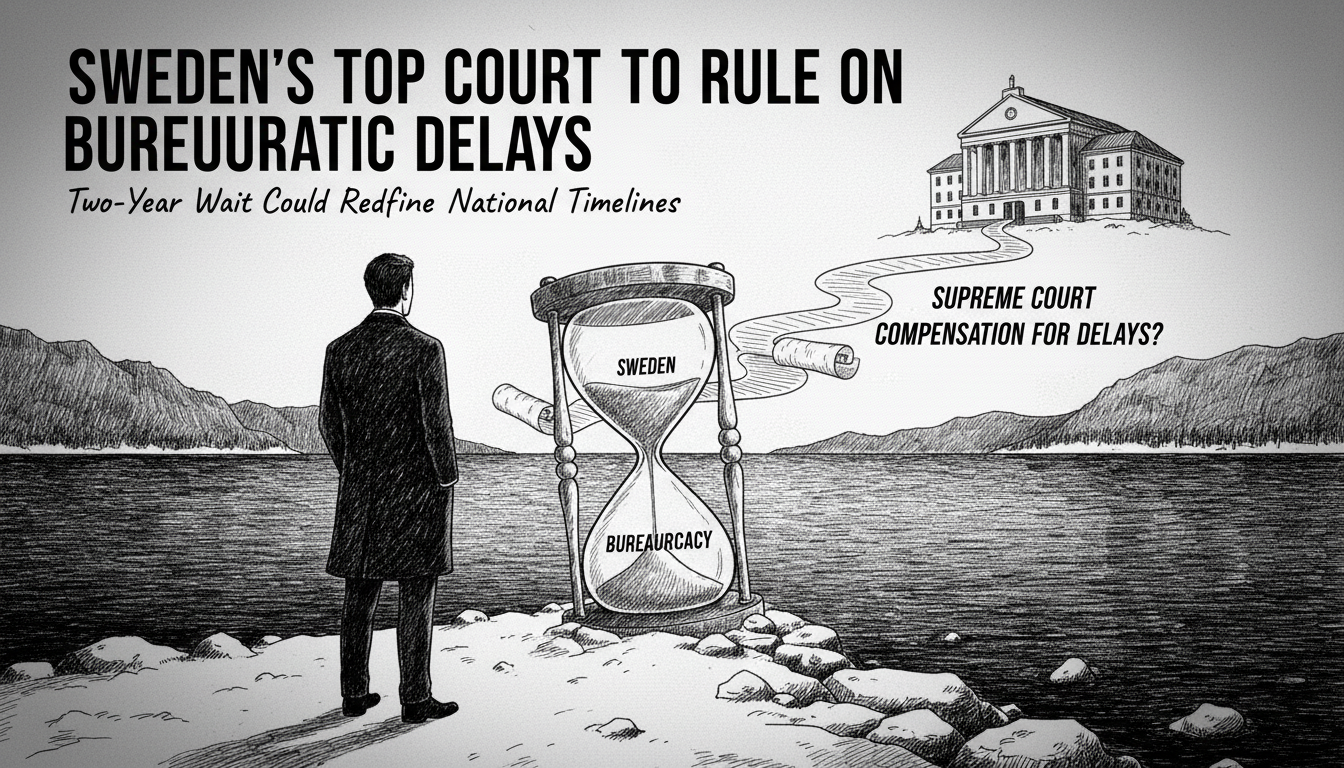Sweden's Top Court to Rule on Bureaucratic Delays
Sweden's Supreme Court will rule on whether citizens can claim compensation for slow government processing. The case involves a two-year wait for a shoreline protection decision and could redefine bureaucratic timelines nationwide.

How long should government agencies take to process cases? Sweden's Supreme Court will now decide this question. The court will also consider whether Swedish courts should follow European Court of Human Rights practices.
The case involves a woman who waited nearly two years for a decision on her shoreline protection exemption application. She argued this violated her right to a hearing within reasonable time under the European Convention on Human Rights.
The Chancellor of Justice initially sided with the county administrative board. Then a district court awarded the woman compensation, but an appeals court reversed that decision. Now the Supreme Court will have the final say.
This landmark case addresses whether individuals deserve compensation for slow bureaucratic processing. It forces Swedish courts to clarify their relationship with European legal precedents.
Government agencies in Sweden sometimes take years to make simple decisions. This case could push them to work faster and respect citizens' time better. The outcome might change how all Swedish authorities handle cases in the future.